View the comic here or scroll down below.
As part of a series of six comics on public authority in different countries across Africa, comic artist Didier Kassai has collaborated with researcher Dr Jonah Lipton to illustrate how front-line workers in Sierra Leone experience emergencies. The cartoon shows how motorbike taxi drivers in Freetown during the Ebola crisis had their main source of income threatened from constant police coercion. Following the lives of young people in the informal economy, the comic centres a protagonist, Peter, who is formally recruited into the official Ebola response through the "Hazard Pay" scheme.
Research on Ebola and hazard pay
The Hazard Pay comic is based on research in Freetown, Sierra Leone, during the 2014-16 Ebola epidemic. Sierra Leone was considered an epicentre of the epidemic and declared a state of emergency, with a large-scale humanitarian intervention proceeding to change many aspects of day-to-day life.
Anthropological fieldwork focused on young people working in the informal economy, observing how these communities creatively responded to the difficulties of life in a state of emergency. The study was driven by how mainstream narratives in the global media did not factor in many ongoing challenges in people’s lives, including their work and how they make ends meet. By narrowly focusing on the disease, most narratives failed to account for the range of people’s priorities and concerns.
The comic sheds light on the ways that the emergency was experienced by some of its front-line workers. The comic's protagonist, Peter, is a motorbike taxi driver with whom the researcher heavily interacted during the fieldwork. He was recruited into the official Ebola response as part of a burial team and the researcher observed the team in action, for one day every week over four to five months.
During the time of Ebola, Peter and many of his colleagues had faced extreme coercion by the police, who were trying to clamp down on informal bike riding – one of few available means for youth to make an income in the city. During Ebola, thousands of young people were recruited into the official response through the Hazard Pay scheme. While challenges persisted, many welcomed the pay and benefits of their new formalised employment, as well as being representatives of the state, rather than actively marginalised by it.
View the comic here or scroll down below.
Researcher: Dr Jonah Lipton
As observed during the COVID-19 pandemic, during emergencies people’s actions cause them to be portrayed through the overly simplistic binary of "hero" or "villain". Most people find themselves in difficult circumstances trying to do what is demanded of them and to look after others – their families, friends, colleagues and strangers – as best they can. The comic seeks to portray this messy reality and the ways it is navigated by front-line Ebola workers. In the end, the success of the official Ebola response, and any public health or humanitarian intervention, is predicated on the abilities of the ordinary workers incorporated into the response to make it work.
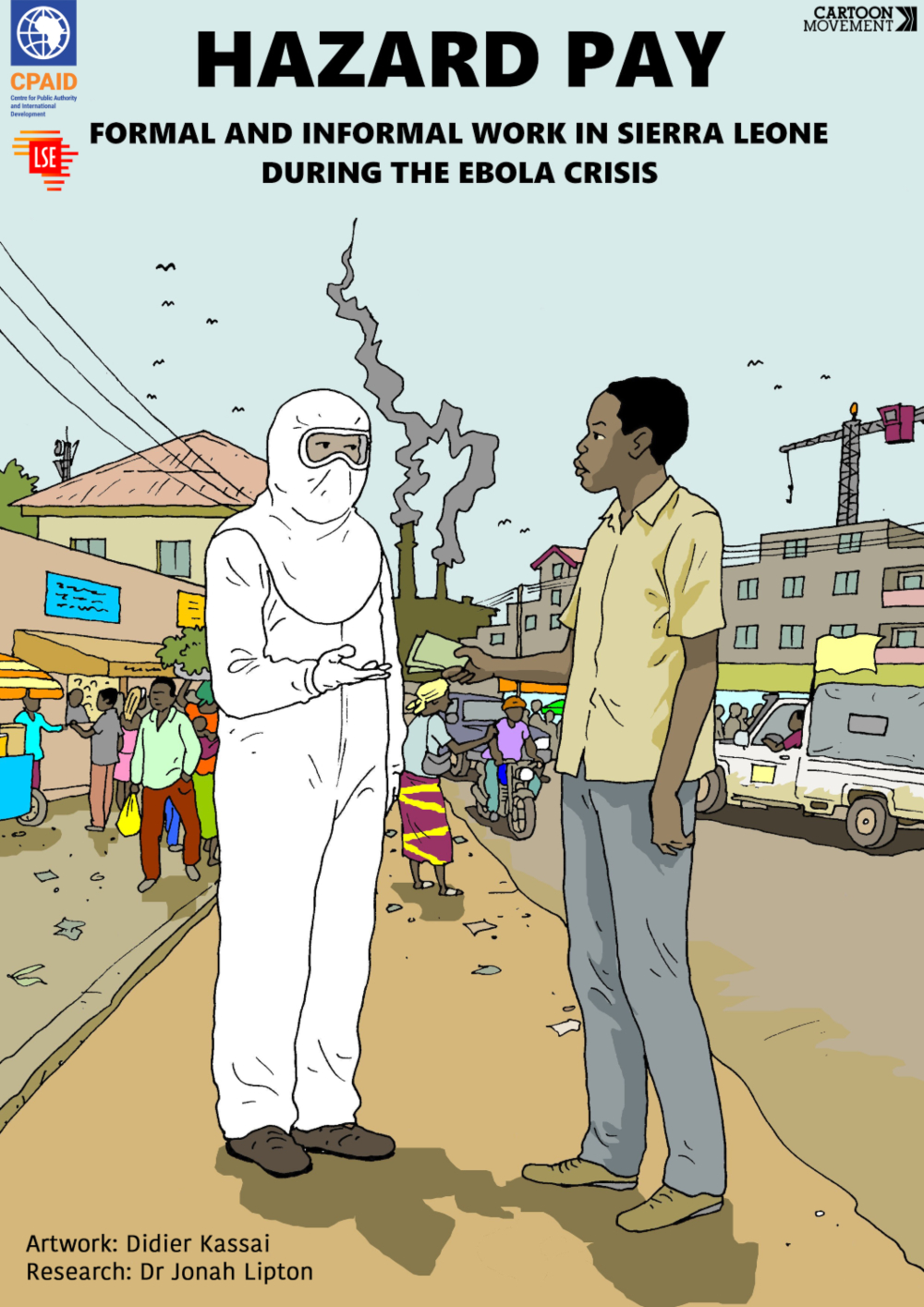
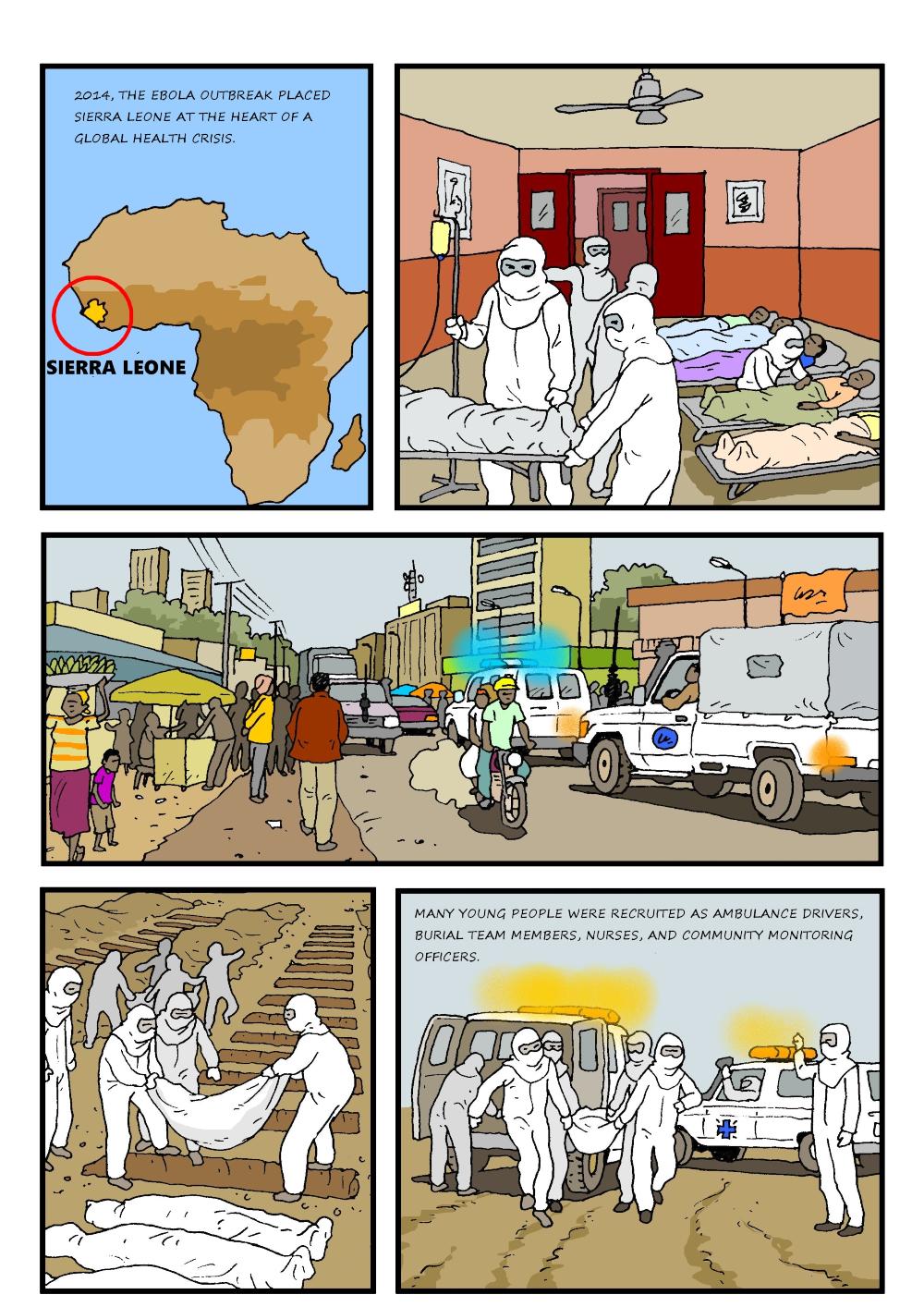
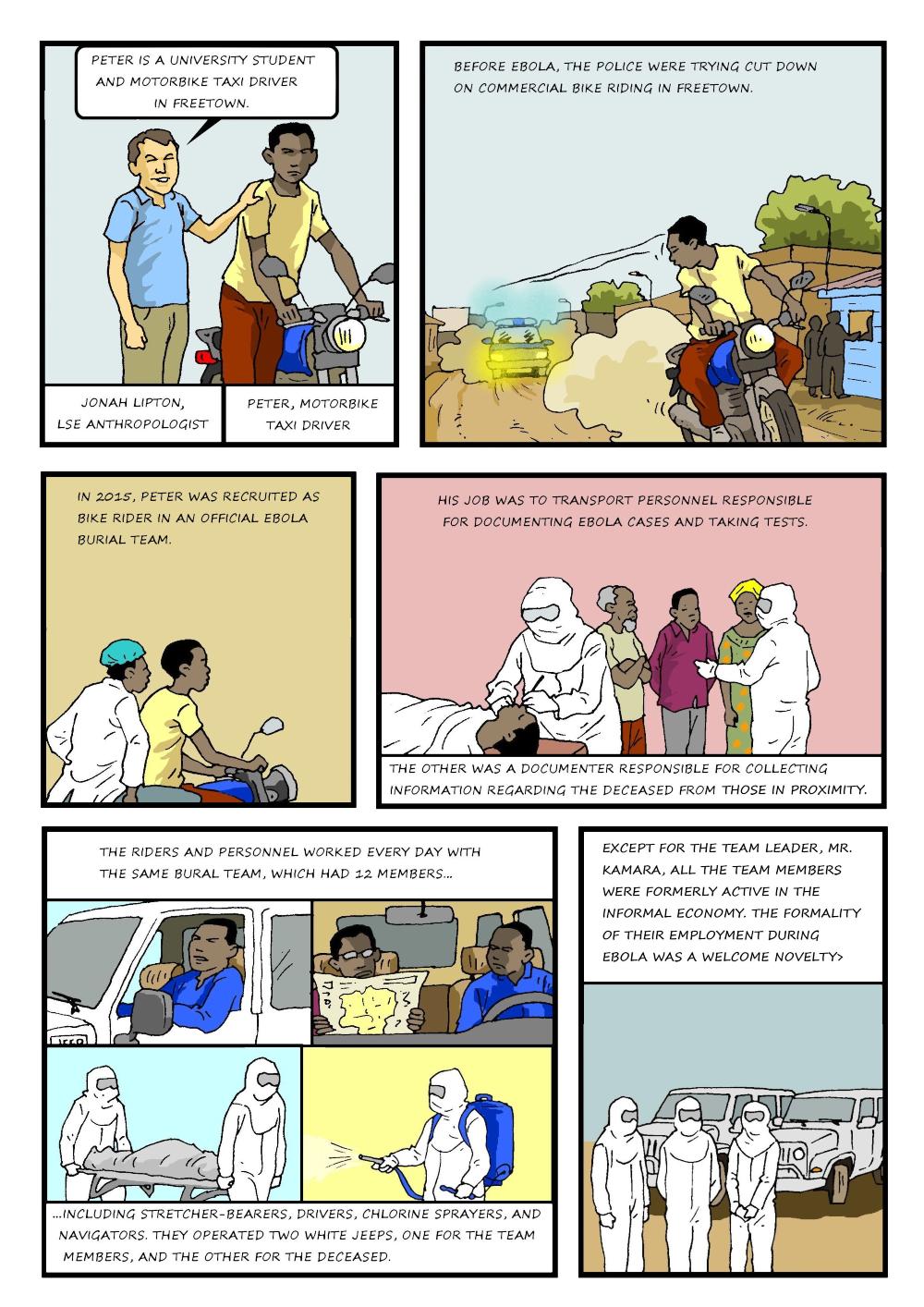
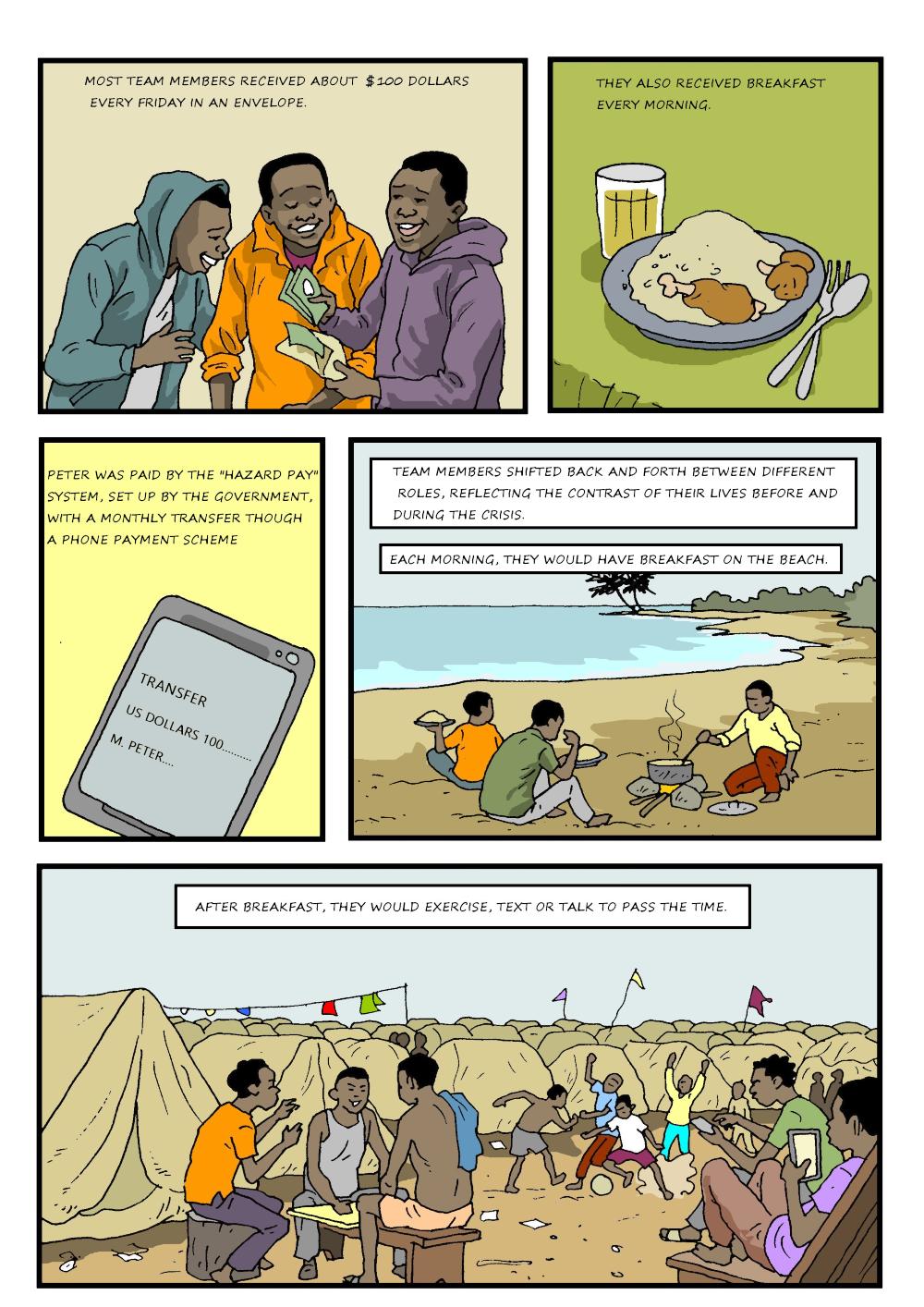
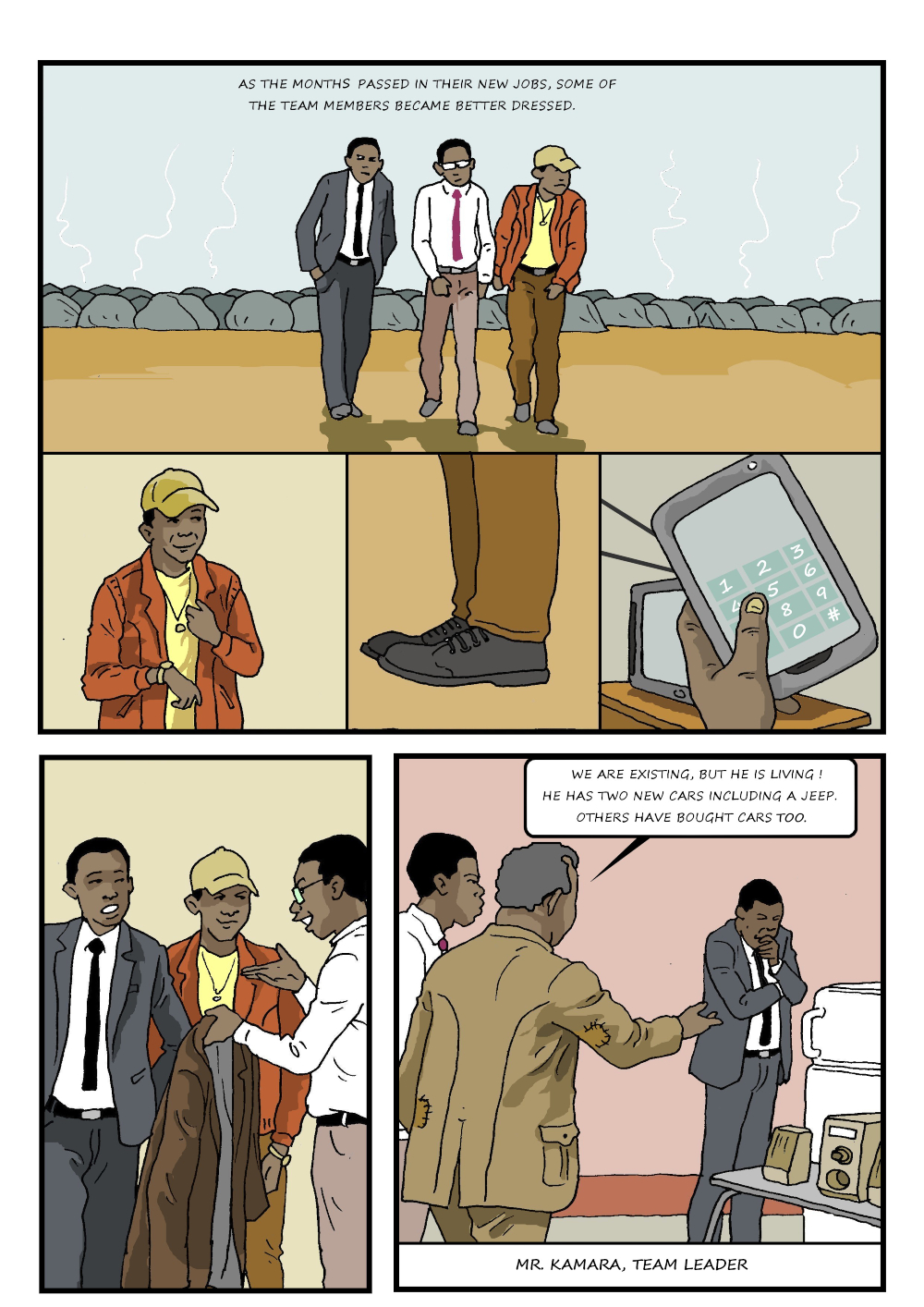
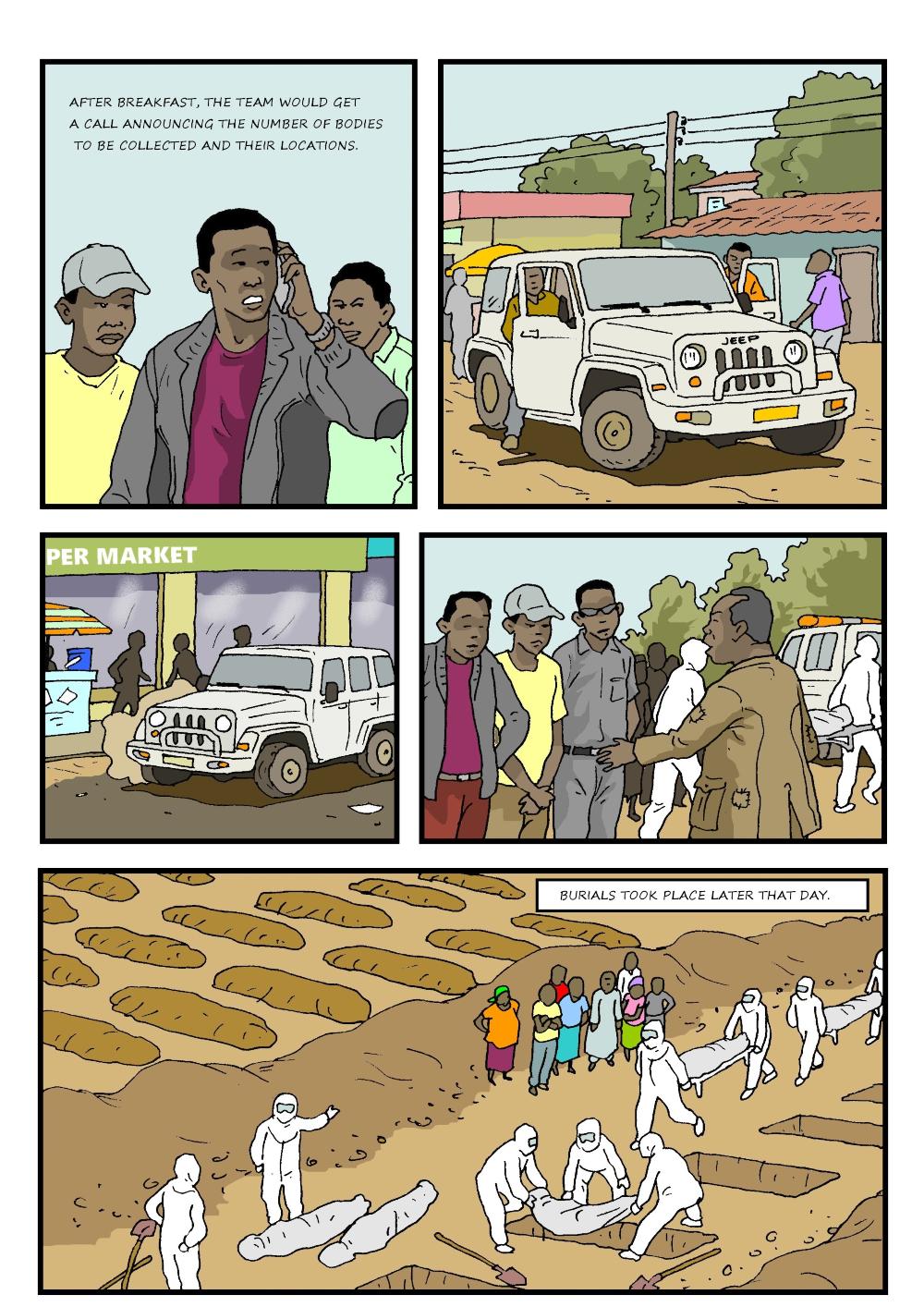
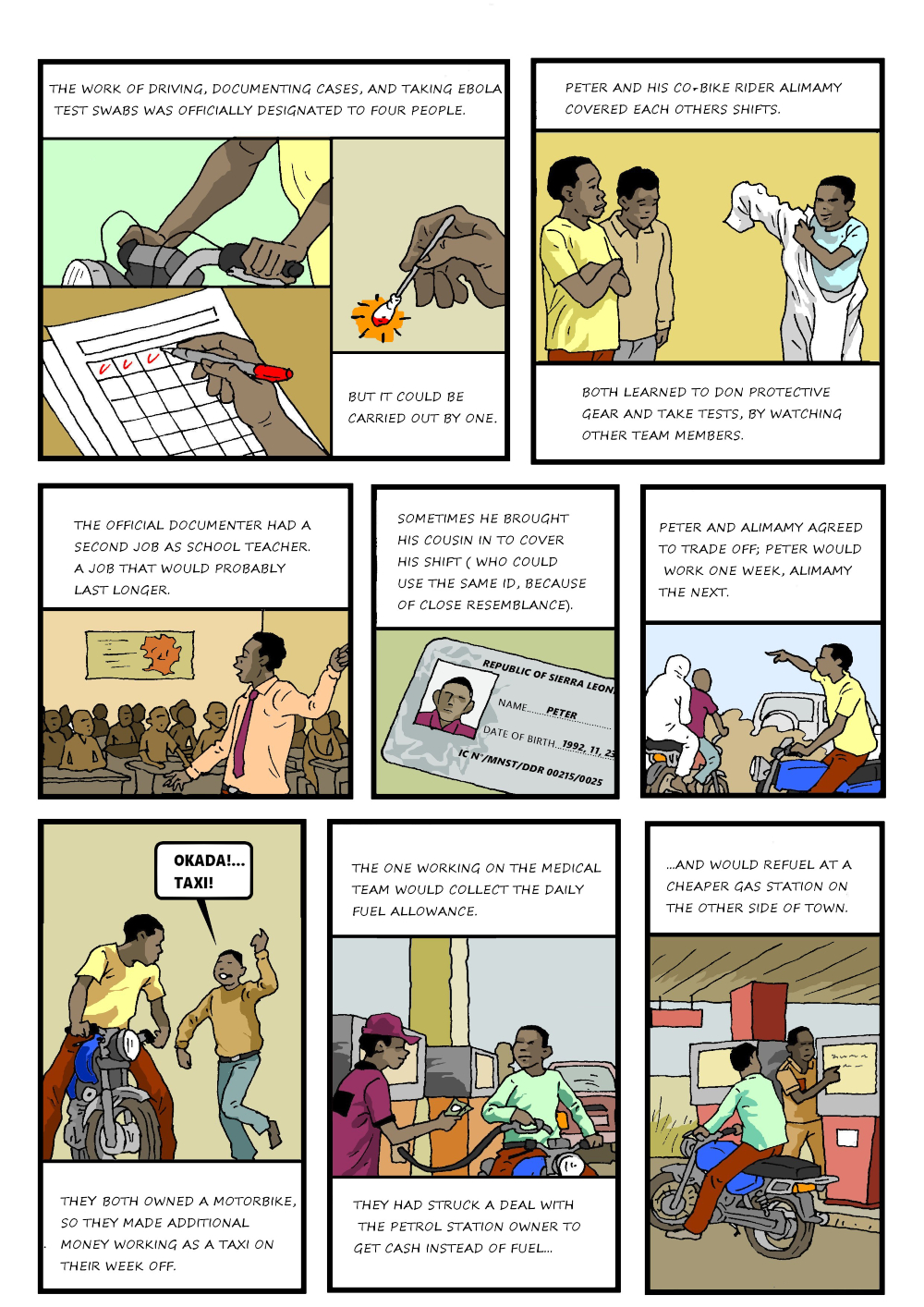
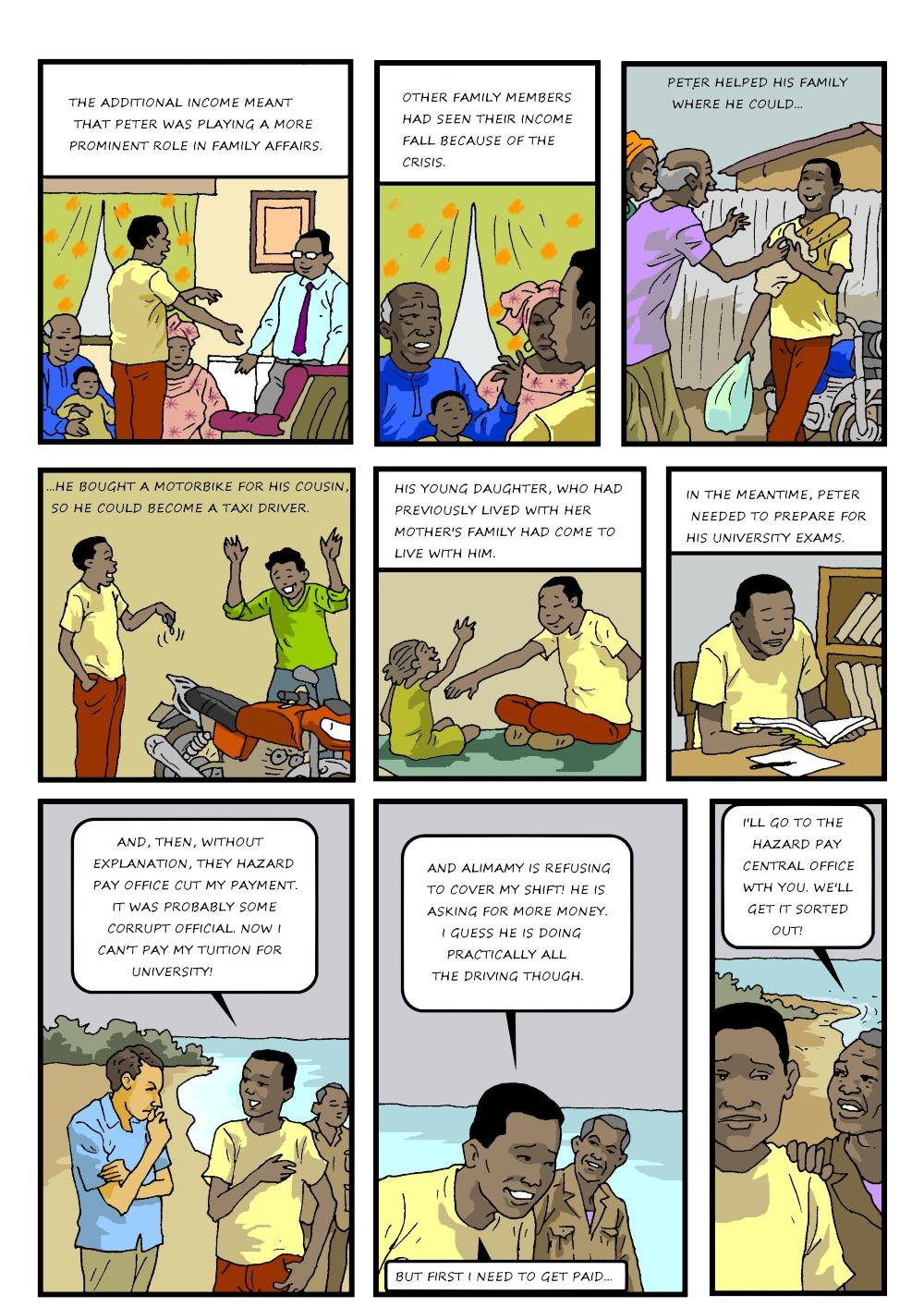
This comic was created by Cartoon Movement, a publishing platform for high quality editorial cartoons and comics journalism from all over the globe.